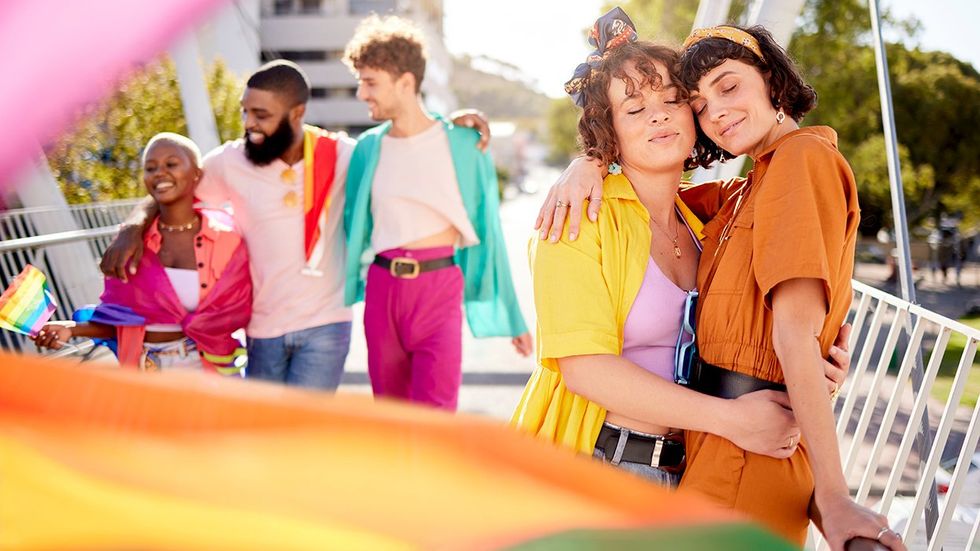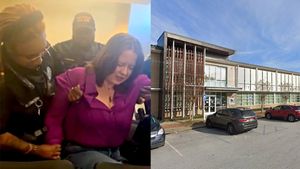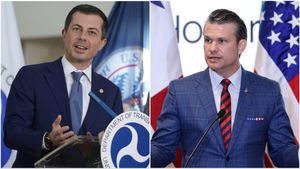Growing up, I didn’t see transgender stories in mainstream media. Transgender characters in film and television of the 90s and earlier were relegated to the periphery and rarely shown in a positive light. Candis Cayne deserves recognition for her recurring role in ABC’s Dirty Sexy Money in 2007, where she played an empowered trans woman. But a pivotal moment came in 2013 with Laverne Cox’s character in Orange is the New Black, a multi-dimensional character full of joy, pain, struggles, and hope.
From books to television and films, stories narrating the joys and pains of being transgender were laid bare for audiences to explore, understand and, ideally, empathize with those in their communities. This representation led to serious discussions about ensuring trans people had equitable access to employment, housing, and healthcare. Over the years, trans people broke barriers, from climbing the corporate ladder to amplifying our stories in journalism and taking up space in legislative corridors.
Storytelling, in its most profound sense, is not just about telling tales; it is a form of existence, a method of survival, and a path to empowerment. Through stories, we see our present reflections, learn from our past, and carve out spaces for our future. Storytelling is not merely recounting events or entertainment but a revolutionary act of reclaiming lost narratives.
Take, for example, the Netflix film on civil rights activist Bayard Rustin, starring Colman Domingo, the phenomenal Oscar-nominated actor and Out’s latest cover star. Rustin’s story and others are the vessels through which we pull back the veil of time and uncover heroic glories of our past. The power of storytelling lies in its ability to change narratives and uplift voices historically marginalized and silenced.
Storytelling is an act of resistance and a declaration of existence. It asserts that we were here, we’ve always been here, and that our stories matter in the greater tapestry of human civilization. Our stories – perspectives, fears, hopes, challenges, and dreams – are ours to tell. Through sharing our stories, we challenge stereotypes, break down barriers, and build bridges of understanding and empathy.
As the new community editor for equalpride, which includes Out, I have embraced this responsibility, understanding that words can be a beacon of hope, a source of strength, and a catalyst for change.
Your story is important, your voice is powerful, and your experiences are valid. So, I invite you to share that story with us at Out by submitting to our Voices section.
Our stories have the power to influence, inspire, and impact. They shape perceptions, inform policies, and ignite social change. When we share our stories, we offer a window into our world, inviting others to see life through our lens. This fosters a greater sense of community and paves the way for future generations to walk a little easier, knowing they are not alone in their journey.
In a world that often tries to silence our voices, it is imperative that we speak up and trust ourselves to share our stories. Our narratives are not just personal anecdotes but powerful tools that can shape societal attitudes and bring about transformative change.
Remember that your story has the potential to influence, inspire, and impact the world for the better. Let us collectively weave a tapestry of narratives that reflect the true diversity and richness of the human experience. In doing so, we honor our individual journeys and contribute to a more inclusive, empathetic, and understanding world.
Let’s tell the stories that need to be read, hear from the voices that need to be heard, and build a future where every narrative is valued and celebrated.
Want to share your story? Please visit out.com/submit for more information about submissions and guidelines.
Marie-Adélina de la Ferrière is the Community Editor at equalpride, publisher of The Advocate, Out, Out Traveler, Plus, and Pride.com.


























































































